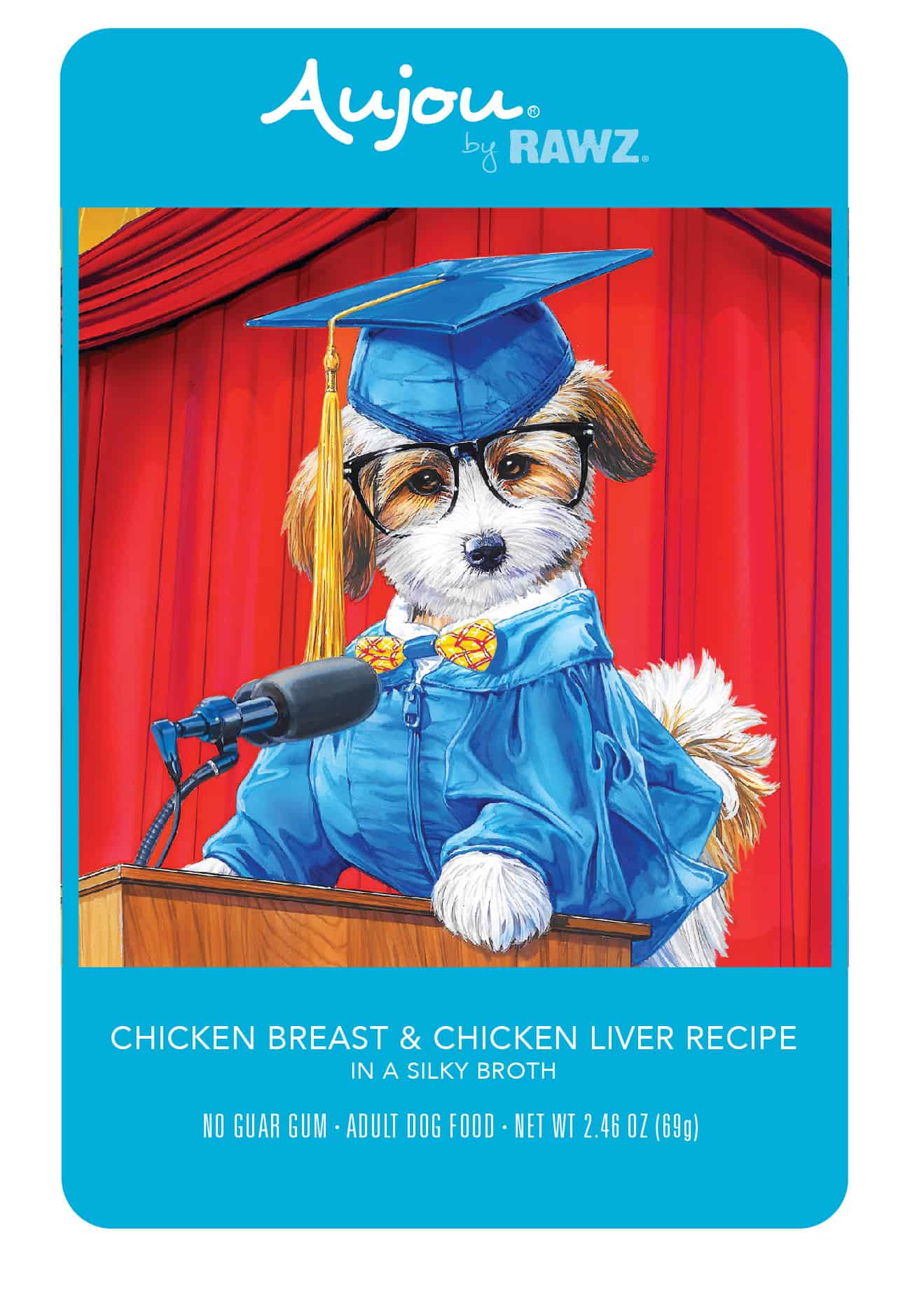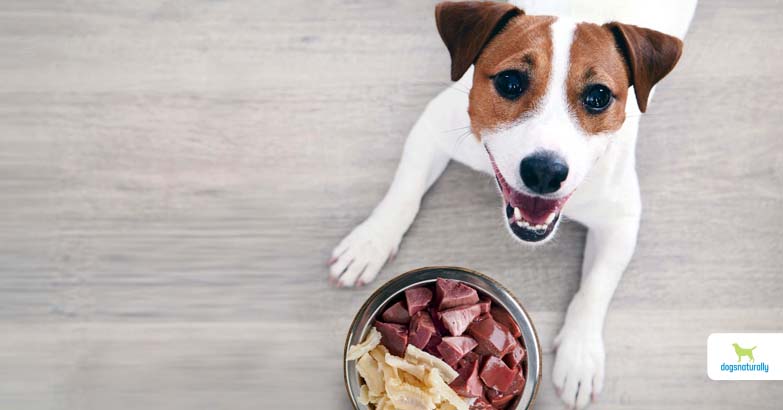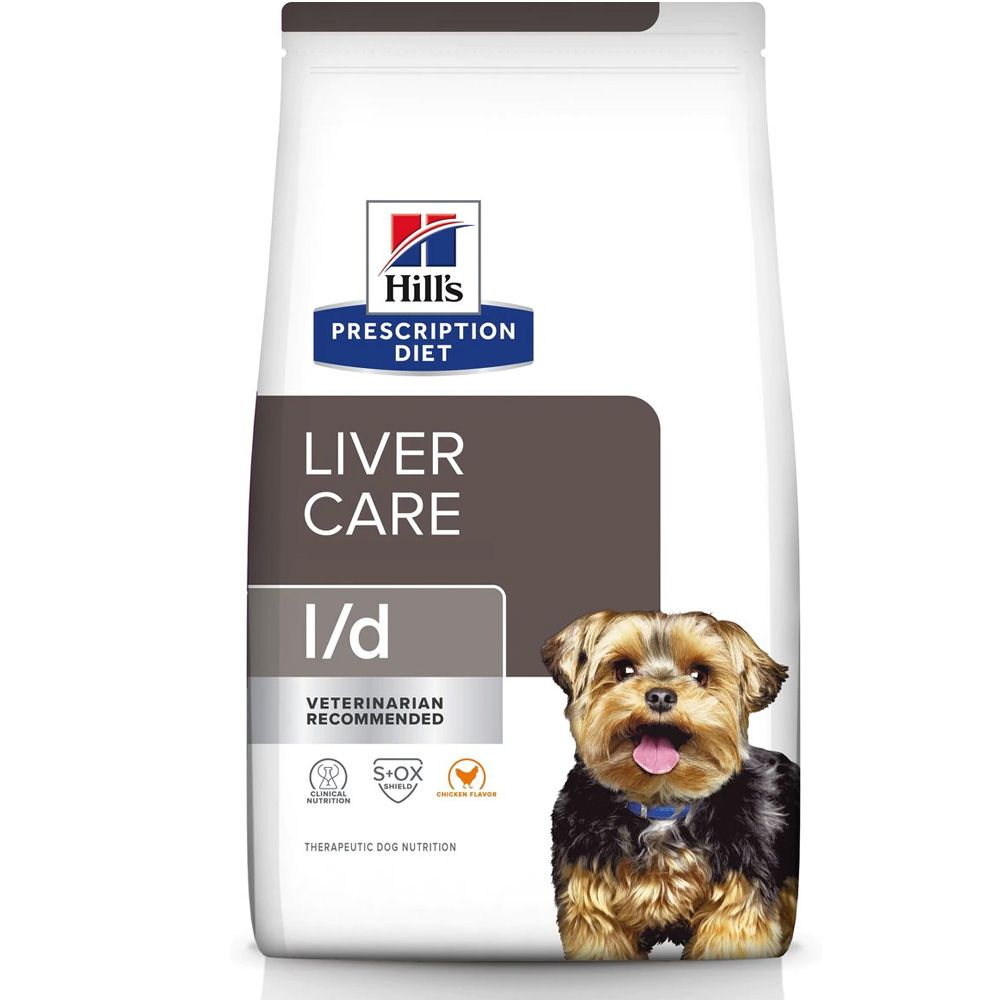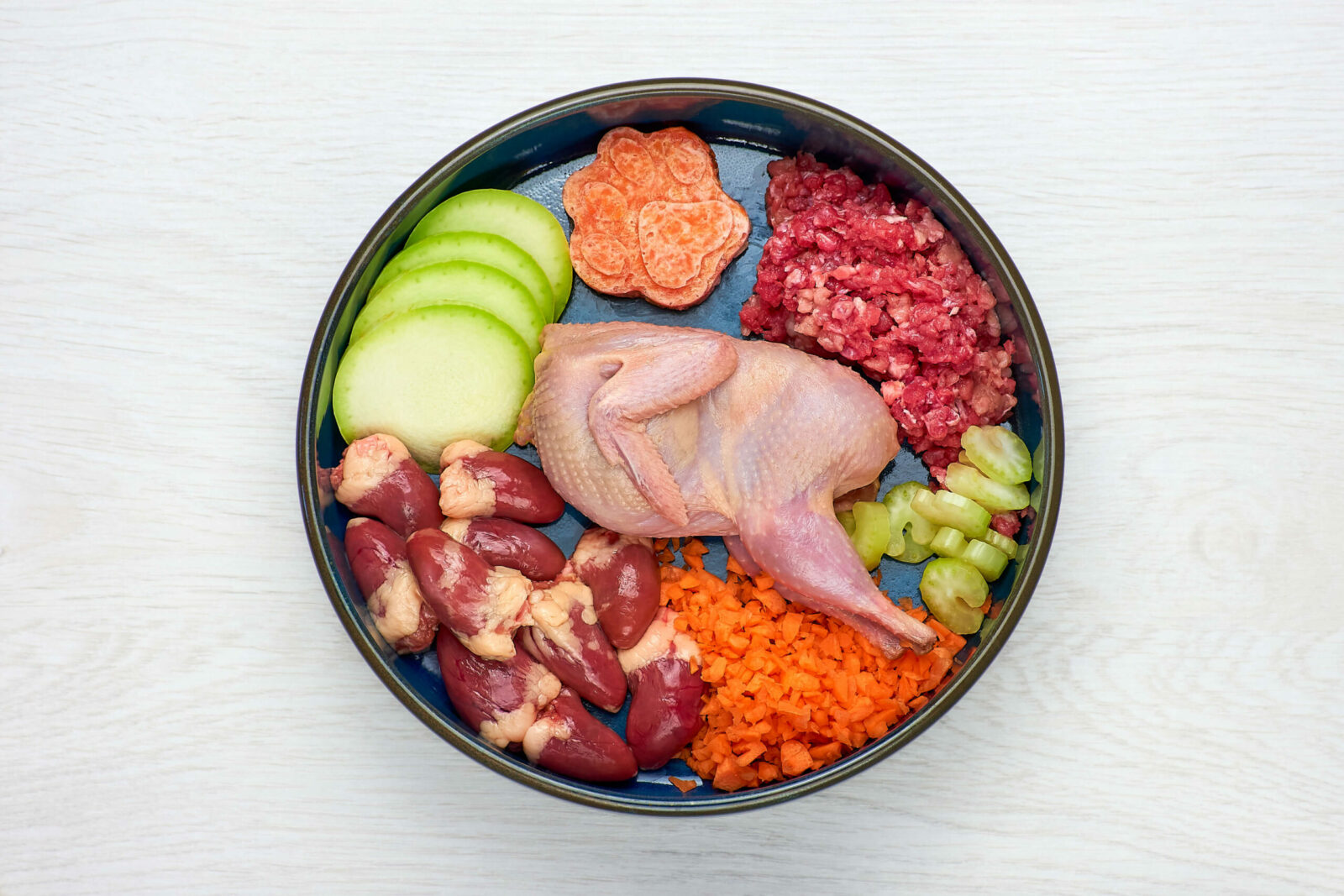Nutritional Benefits Of Chicken Liver For Dogs

Chicken liver is a nutrient-dense food that offers several benefits to dogs. It is rich in protein, providing essential amino acids for muscle development and maintenance. Additionally, chicken liver is a good source of vitamins A, B, and C, which support a strong immune system and promote healthy skin and coat. It also contains minerals such as iron and zinc, which are important for blood health and metabolic function. Incorporating chicken liver into a dog’s diet can contribute to their overall nutrition and well-being. However, it is important to feed it in moderation and consult with a veterinarian for proper portion sizes.
Nutrients Present In Chicken Liver
Chicken liver is packed with essential nutrients that contribute to the overall health and well-being of dogs. It is a rich source of high-quality protein, providing essential amino acids that support muscle development and maintenance. Additionally, chicken liver contains vitamins A, B, and C, which are crucial for a strong immune system, healthy skin, and a shiny coat. It also contains minerals such as iron and zinc, which play important roles in blood health and metabolic function. Incorporating chicken liver into a dog’s diet can provide them with a host of nutritional benefits.
Health Benefits Of Feeding Chicken Liver To Dogs
Feeding chicken liver to dogs offers numerous health benefits. This nutrient-rich organ meat is an excellent source of high-quality protein, essential amino acids, and vitamins A, B, and C. These nutrients support muscle development, boost immune function, enhance skin and coat health, and promote good eye health. Additionally, chicken liver contains minerals like iron and zinc, which contribute to healthy blood and optimal metabolic function. Incorporating chicken liver into a dog’s diet can provide them with essential nutrients that contribute to their overall well-being and vitality.
Risks And Concerns Associated With Feeding Chicken Liver To Dogs

Feeding chicken liver to dogs can have some risks and concerns that pet owners should be aware of. One potential danger is the excessive consumption of chicken liver, which can lead to vitamin A toxicity or hypervitaminosis A. This can cause bone problems and other health issues. Additionally, chicken liver has high cholesterol levels, so dogs with existing high cholesterol levels or those at risk of copper storage disease should limit their liver intake. It is important to consult with a veterinarian to determine the appropriate portion sizes and to ensure a balanced diet for your dog.
Potential Dangers Of Excessive Chicken Liver Consumption
Excessive consumption of chicken liver can pose potential dangers for dogs. One concern is the risk of vitamin A toxicity or hypervitaminosis A. This occurs when dogs consume too much vitamin A, which can lead to bone problems and other health issues. Additionally, chicken liver is high in cholesterol, so dogs with existing high cholesterol levels or those at risk of copper storage disease should limit their liver intake. It is crucial for pet owners to consult with a veterinarian to determine appropriate portion sizes and ensure a balanced diet for their dogs.
Proper Portion Sizes And Moderation
When it comes to feeding chicken liver to dogs, it is important to consider proper portion sizes and practice moderation. The ideal portion size of liver should be based on the weight of the dog, with liver making up no more than 5% to 10% of their overall diet. Feeding too much liver can lead to digestive issues or vitamin A toxicity. It is crucial to consult with a veterinarian to determine the appropriate amount of liver based on the specific needs of your dog. By feeding liver in moderation, you can ensure your dog receives the nutritional benefits without any potential risks.
Alternative Protein Sources For Canine Nutrition

When it comes to providing a balanced diet for dogs, it’s important to consider alternative protein sources in addition to chicken liver. Some other protein-rich options for canine nutrition include lean meats like chicken and turkey, fish such as salmon and sardines, and plant-based sources like lentils and quinoa. These alternative protein sources can provide the necessary amino acids for muscle growth and maintenance, as well as essential nutrients like omega-3 fatty acids. It’s important to consult with a veterinarian to determine the appropriate combination of protein sources for your dog’s specific dietary needs.
Recommended Protein Sources For Dogs
Recommended protein sources for dogs include lean meats such as chicken and turkey, fish like salmon and sardines, and plant-based options like lentils and quinoa. These protein-rich foods provide essential amino acids for muscle growth and maintenance, as well as important nutrients like omega-3 fatty acids. It’s important to offer a variety of protein sources to ensure a balanced diet for dogs. Consulting with a veterinarian can help determine the optimal combination of protein sources based on a dog’s specific needs and dietary preferences.
Balanced Diet Considerations For Overall Health
A balanced diet is crucial for the overall health and well-being of dogs. While chicken liver can be a nutritious addition to a dog’s diet, it should not be the sole source of protein. It is important to provide a variety of protein sources, such as lean meats, fish, and plant-based options, to ensure all necessary nutrients are being consumed. Additionally, incorporating fruits and vegetables can provide essential vitamins and minerals. Consulting with a veterinarian can help determine the optimal balance of nutrients for a dog’s specific needs.
Cooking Methods And Preparation Tips For Chicken Liver

When it comes to cooking chicken liver for dogs, there are a few methods that can be used. One option is to boil the liver, which helps retain its nutritional value. Simply wash the chicken liver in water and then place it in a pot with enough water to cover it. Boil until fully cooked, which typically takes about 7-10 minutes. Another option is to bake the liver, which can help give it a crispy texture. Lightly coat the liver with a small amount of oil and bake at 375°F for about 15-20 minutes, or until fully cooked. Avoid using excessive oil or seasonings that may be harmful to dogs. By following these cooking methods, you can ensure the chicken liver is safe and healthy for your furry friend to enjoy.
Safe Cooking Practices For Chicken Liver
When cooking chicken liver for dogs, it is important to follow safe cooking practices to ensure their health and safety. Here are some tips to keep in mind:
- Thoroughly wash the chicken liver before cooking to remove any impurities.
- Cook the liver until it is fully cooked through, reaching an internal temperature of 165°F to kill any potential bacteria.
- Avoid overcooking the liver, as it can become dry and lose its nutritional value.
- Use clean utensils, cutting boards, and surfaces to prevent cross-contamination.
- Store any leftovers in airtight containers in the refrigerator for up to three days.
By following these safe cooking practices, you can ensure that the chicken liver is prepared in a way that is safe and healthy for your dog to consume.
Avoiding Harmful Additives And Seasonings
It is important to avoid using harmful additives and seasonings when cooking chicken liver for dogs. Dogs have sensitive digestive systems, and certain ingredients commonly used in human food can be toxic to them. It is best to stick to plain cooked liver without the addition of salt, spices, herbs, onions, garlic, or any other flavor enhancers. These ingredients can cause digestive upset, gastrointestinal issues, or even toxicity in dogs. Providing a simple and plain preparation ensures the safety and well-being of your furry friend.
Consulting With A Veterinarian About Canine Nutrition

Consulting with a veterinarian about canine nutrition is crucial for ensuring the overall health and well-being of your dog. Veterinarians have the expertise and knowledge to assess your dog’s individual dietary needs and make appropriate recommendations. They can help you determine the right balance of nutrients, portion sizes, and specific dietary requirements for your dog’s age, breed, and any existing health conditions. Additionally, veterinarians can guide you on choosing alternative protein sources or addressing any concerns or allergies related to chicken liver. Consulting with a veterinarian will ensure that your dog receives a customized meal plan that promotes optimal nutrition and a healthy lifestyle.
Importance Of Consulting A Veterinarian For Dietary Advice
Consulting a veterinarian for dietary advice is of utmost importance when it comes to the health and well-being of your dog. Veterinarians have specialized knowledge and expertise in animal nutrition, allowing them to assess your dog’s specific dietary needs. They can take into account factors such as age, breed, and any existing health conditions to create a personalized meal plan. Veterinarians can guide you on portion sizes, nutrient balance, and any necessary dietary modifications. By consulting with a veterinarian, you can ensure that your dog receives the optimal nutrition and diet for their individual needs.
Customizing A Meal Plan Based On Individual Dog’s Needs
Customizing a meal plan based on an individual dog’s needs is crucial for ensuring their optimal health and well-being. Every dog is unique, with different nutritional requirements based on factors such as age, breed, size, and activity level. Consulting with a veterinarian is essential to create a personalized meal plan that meets these specific needs. The veterinarian can recommend the appropriate amount of protein, carbohydrates, and fats to include in the diet. They can also advise on any necessary modifications, such as the addition of supplements for joint health or weight management. By tailoring the meal plan to the individual dog, their dietary needs can be met effectively.
Conclusion

Chicken liver is a nutritious and beneficial addition to a dog’s diet. It is packed with essential nutrients, including protein and vitamins, that promote overall health and well-being. However, it is crucial to feed chicken liver in moderation and balance it with other nutrient-rich foods. Consulting with a veterinarian is important to ensure that the amount and frequency of feeding chicken liver align with the specific needs of each dog. By incorporating chicken liver as part of a balanced and varied diet, dog owners can provide their furry companions with the necessary nutrients for optimal health.
Summarizing The Benefits And Risks Of Feeding Chicken Liver To Dogs
Feeding chicken liver to dogs can provide numerous benefits. It is rich in protein and essential nutrients, promoting overall health and well-being. However, it is crucial to feed chicken liver in moderation to avoid potential risks. Excessive consumption may lead to digestive upset or vitamin A toxicity. Therefore, consulting with a veterinarian is essential to determine the appropriate portion sizes and frequency based on the individual dog’s needs. By incorporating chicken liver as part of a balanced diet, dog owners can ensure their furry companions receive the necessary nutrients for optimal health.
Key Takeaways For Maintaining A Healthy And Balanced Diet For Dogs
- Consult with a veterinarian to determine the appropriate portion sizes and frequency for feeding chicken liver to your dog.
- Feed chicken liver in moderation to avoid digestive upset and potential vitamin A toxicity.
- Consider alternative protein sources, such as lean meats or fish, to provide variety in your dog’s diet.
- Ensure your dog’s diet is balanced by including a mix of proteins, carbohydrates, and essential fats.
- Use safe cooking practices when preparing chicken liver, avoiding harmful additives and seasonings.
- Keep an eye out for any potential allergies or sensitivities to chicken or liver in your dog.
- Regularly consult with a veterinarian to customize a meal plan based on your individual dog’s needs for optimal health and well-being.
FAQ About Chicken Liver To Dogs: Canine Nutrition Concerns
Q: Is it safe to feed chicken liver to dogs?
A: Yes, chicken liver can be a nutritious treat for dogs when fed in moderation.
Q: What are the nutritional benefits of chicken liver for dogs?
A: Chicken liver is rich in protein, vitamins A and B, iron, and essential fatty acids, which can support a dog’s overall health.
Q: How much chicken liver can I feed my dog?
A: It is recommended to feed chicken liver as an occasional treat and not as a main meal to avoid an imbalance in their diet. A general guideline is to offer it in small amounts, such as a tablespoon per 20 pounds of body weight, a few times a week.
Q: Are there any risks associated with feeding chicken liver to dogs?
A: While chicken liver is a nutritious option, it is high in cholesterol and should be given in moderation to prevent digestive upset or weight gain in dogs. Also, make sure the liver is cooked thoroughly to avoid any potential bacterial contamination.
Q: Can dogs with health conditions eat chicken liver?
A: Dogs with specific health conditions, such as pancreatitis or liver issues, should not consume high-fat foods like chicken liver without consulting a veterinarian first. Always consider your dog’s individual dietary needs before introducing new foods like chicken liver.

Salsas by Karoll’s Catering is a vibrant and innovative Canadian fusion family restaurant that welcomes you to indulge in a delightful culinary experience. Every Sunday, from 11 am to 2 pm, we invite you for a delicious brunch that will tantalize your taste buds. Whether you prefer dining in or taking out, we ensure that our delectable dishes are available to savour at your convenience. In addition to our enticing Sunday brunch, we host a lively happy hour every Thursday, Friday, and Saturday. During this time, you can enjoy discounted food items, get $2.50 off on beer, and sip on refreshing $5 margaritas. It’s the perfect opportunity to unwind and relish in the flavours of our Canadian fusion cuisine.